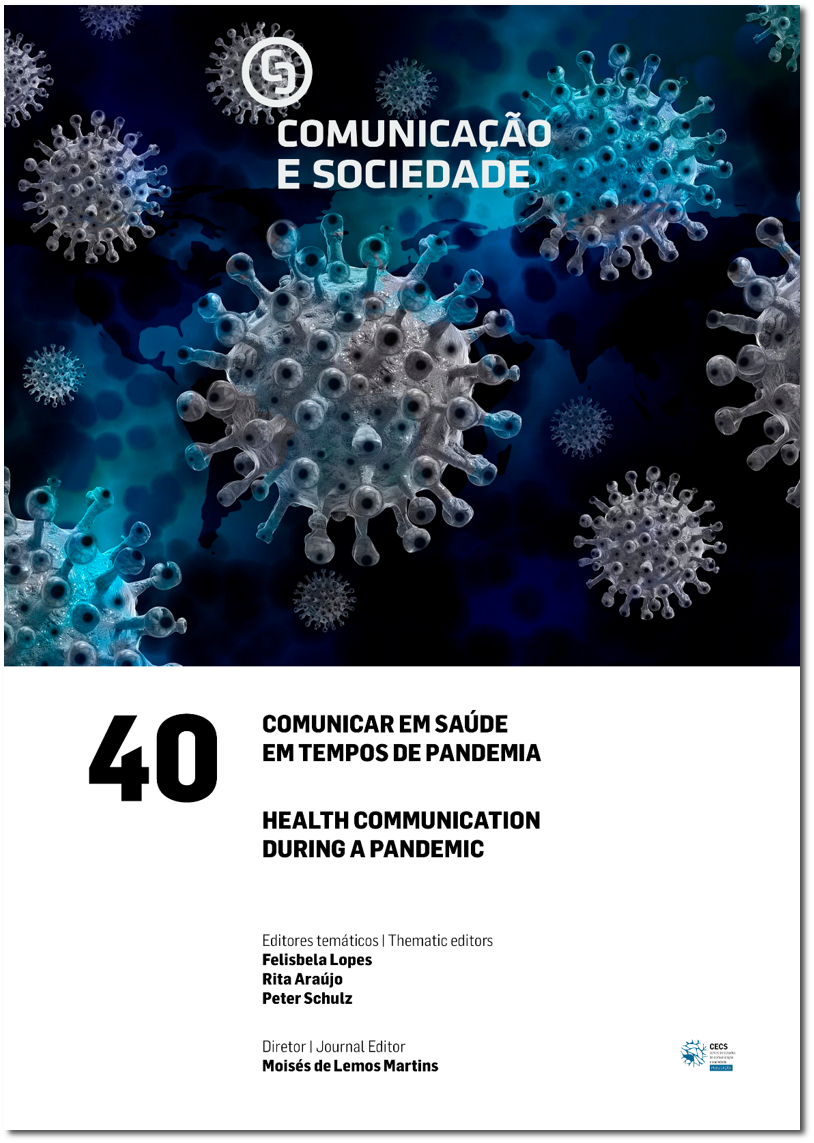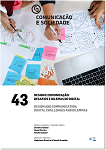Health Communication During a Pandemic: What Is Our Role as Communication Scholars? Introductory Note
DOI:
https://doi.org/10.17231/comsoc.40(2021).3703Abstract
There are countless possible discussions related to the spreading of SARS-CoV-2. This issue is dedicated to “Health Communication During a Pandemic” and presents texts that offer us a systemic vision of Communication and Journalism during the pandemic, namely in the first year of SARS-CoV-2.
Downloads
References
Fishman, M. (1981). Police news. Constructing an image of crime. Urban Life, 9(4), 371–394.
Hannawa, A. F., Kreps, G. L., Paek, H., Schulz, P. J., Smith, S., & Street, R.L., Jr. (2014). Emerging issues and future directions of the field of health communication. Health Communication, 29(10), 955–961. https://doi.org/10.1080/10410236.2013.814959
Mazur, A. (2004). True warnings and false alarms. Evaluating fears about the health risks of technology, 1948-1971. Routledge.
Downloads
Published
How to Cite
Issue
Section
License
Copyright (c) 2021 Felisbela Lopes, Rita Araújo, Peter Schulz

This work is licensed under a Creative Commons Attribution-NonCommercial 4.0 International License.
Authors own the copyright, providing the journal with the right of first publication. The work is licensed under a Creative Commons Attribution 4.0 International License.














